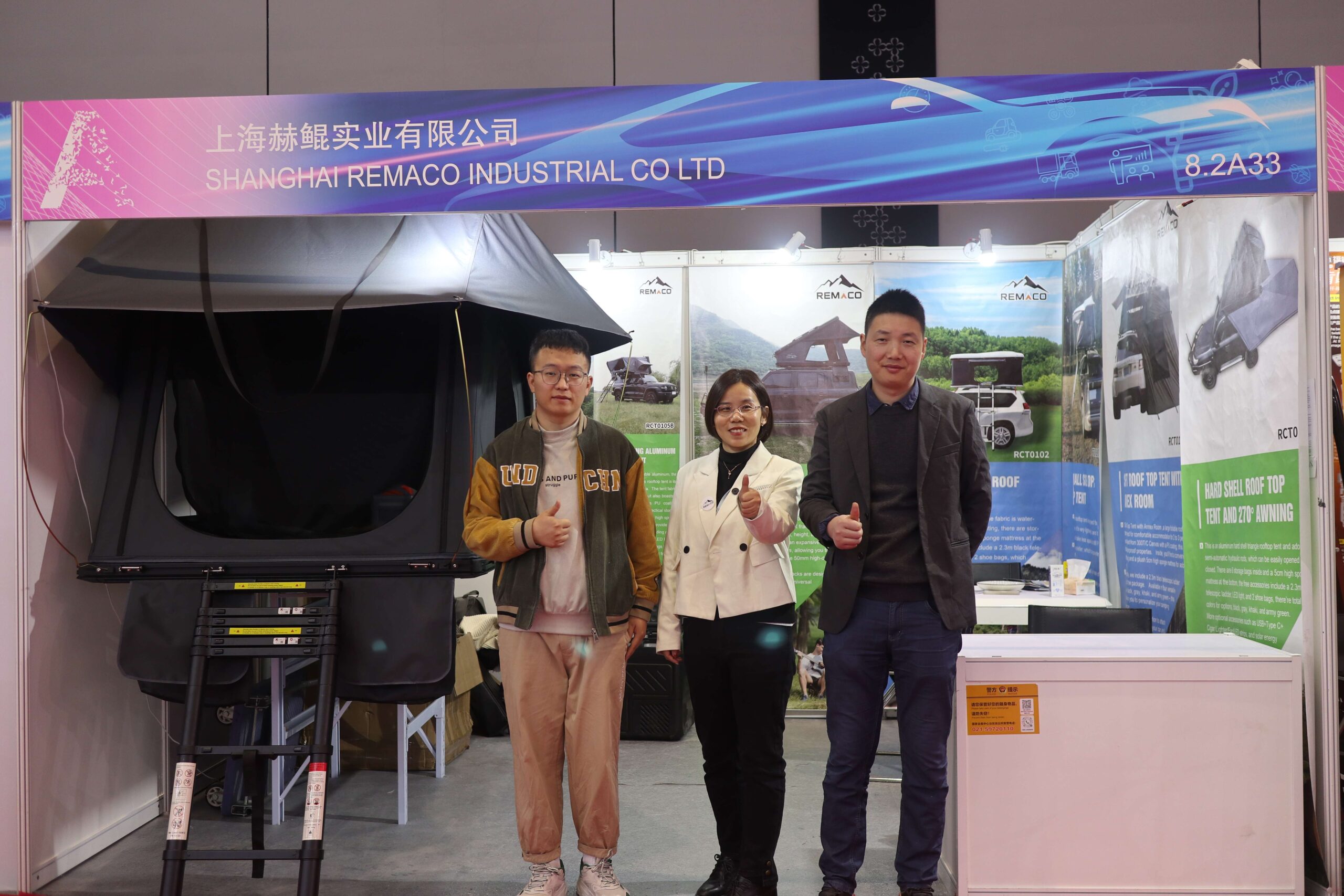Home > Products
Delivering smarter, more ergonomic outdoor adventure solutions for you.
Shanghai Remaco Industrial Co., Ltd. is a professional exporter and manufacturer of high-quality outdoor camping & off-road parts. We have an excellent team who are rich in camping and off-road knowledge and international business trade experience for more than 10 years, and easy for you to communicate with.

Rooftop tents generally fall into two main categories: soft-shell and hard-shell tents. Soft-shell tents have a fabric exterior and are usually foldable, allowing for larger living spaces but requiring more time for setup. They are often lighter and less expensive. Hard-shell tents, on the other hand, come with a sturdy outer shell that offers better protection from the elements, a faster setup process, and improved aerodynamics when driving. They are usually more durable but also more costly. Some hard-shell tents can be opened up with gas struts or hinges, making them extremely convenient.
The primary difference between soft-top and hard-top rooftop tents lies in their durability, ease of setup, and price. Soft-top tents are typically more spacious and offer better ventilation, making them ideal for warmer climates. Hard-top tents, meanwhile, offer superior weather resistance, faster setup, and better aerodynamics, which helps reduce wind noise and fuel consumption. As of now, sales trends indicate a rising preference for hard-top tents, especially in regions with harsher climates, as customers are increasingly seeking durability and convenience. However, soft-top tents remain popular for customers looking for a more affordable and flexible option.
Rooftop tents generally fall into two main categories: soft-shell and hard-shell tents. Soft-shell tents have a fabric exterior and are usually foldable, allowing for larger living spaces but requiring more time for setup. They are often lighter and less expensive. Hard-shell tents, on the other hand, come with a sturdy outer shell that offers better protection from the elements, a faster setup process, and improved aerodynamics when driving. They are usually more durable but also more costly. Some hard-shell tents can be opened up with gas struts or hinges, making them extremely convenient.
To assess the quality of a rooftop tent, examine the materials, construction, zippers, stitching, and frame durability. High-quality rooftop tents should use materials such as durable ripstop fabric and stainless steel components to withstand weather and wear. The tent poles should be sturdy, preferably aluminum or high-grade steel, and the zippers should be heavy-duty to prevent snagging or breaking. Also, ensure that the stitching is reinforced, particularly around high-stress areas. A quality inspection of a sample or third-party inspection can reveal much about a manufacturer’s production standards.
Rooftop tents commonly use ABS (Acrylonitrile Butadiene Styrene) or aluminum for the outer shell. ABS is a tough, impact-resistant plastic that offers good durability and insulation, making it a popular choice for affordable hard-shell tents. Aluminum shells, however, are lightweight, corrosion-resistant, and highly durable, offering better weather protection and longevity. The choice between ABS and aluminum depends on the buyer’s priorities: ABS is often more affordable, while aluminum is ideal for rugged, long-term use and extreme climates.
Common after-sales issues with rooftop tents include leakage, zippers breaking, wear and tear of fabric, struts or hinges failing, and mounting hardware issues. Some users report problems with ventilation and condensation build-up in colder climates. It’s important to choose a supplier with a responsive after-sales team and warranty policies to address these issues, as rooftop tents endure various environmental stresses. Regular maintenance and proper installation can also mitigate some of these common problems.
When purchasing a rooftop tent from China, here are ten crucial points to consider:
Finding a reliable supplier for rooftop tents involves a few strategic steps:

Passionate about exploring the great outdoors? Our FAQ section provides expert advice to help you camp smarter, travel safer, and make the most of your wilderness journeys.
Always a pre-production sample before mass production. Always final Inspection before shipment.
Yes, we offer OEM services and can personalize the logo on the product. Some products allow for logo customization on as few as one unit.
We won’t display your designs and brands to other customers, nor display them on the internet, show, sample room, etc, and we can also sign a confidentiality and non-disclosure agreement with you and our sub-contractors.
Remaco is a professional manufacturer and exporter with over 20 Outdoor Camping equipment production lines in China. We supply
full-line one-stop purchase in outdoor adventure camping products at the most cost-effective price. All our products are tested before being shipped, ensuring that our customers receive only the best products.
We will resend the same quantity of products for free.
Explore Our Innovative Solutions, find the One That Fits Your Needs.
Unlock your overlanding potential with Remaco’s durable camping gear. Built for tough environments, our products ensure you’re always ready for adventure.
Contact us today—click ‘Inquire Now’ to start an innovative future with Remaco.
Your email information will be kept strictly confidential, and our business staff will ensure that your private information is always safe.
reply within 24 Hours
Thanks for your inquiry, we will reply to you in 24 hours.